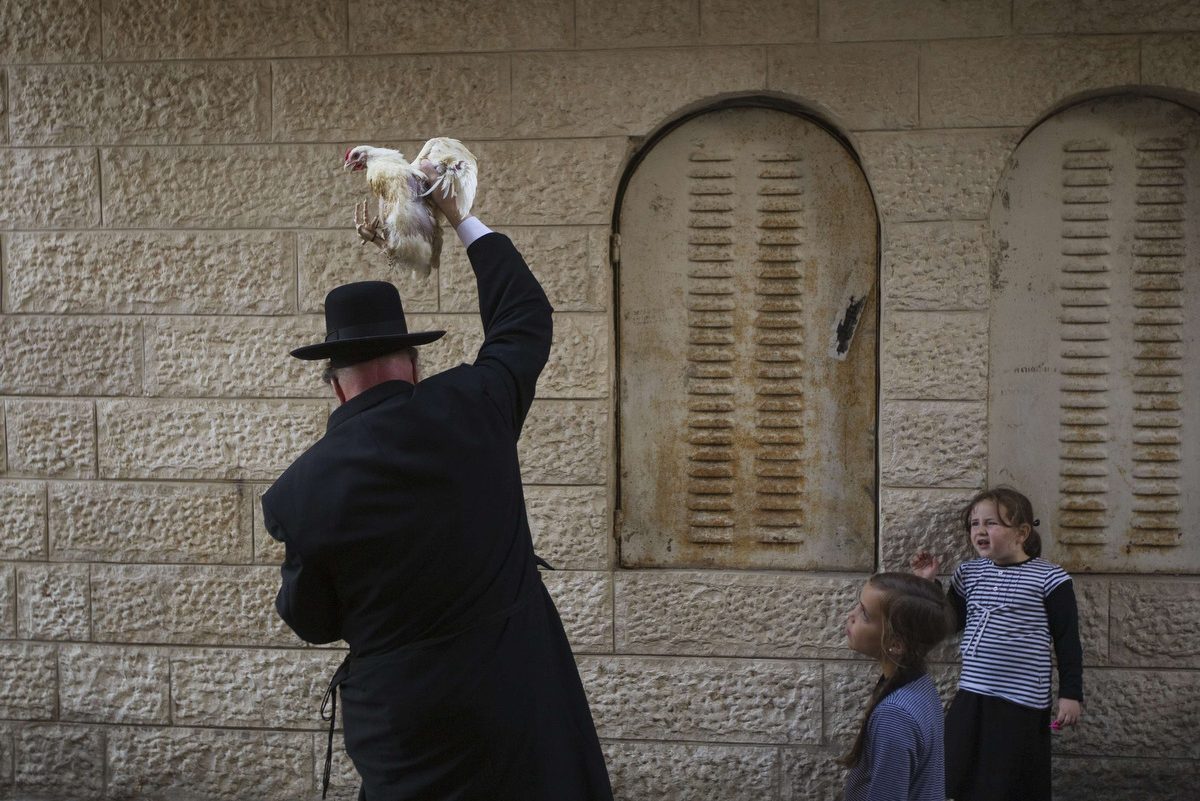The day before Yom Kippur is considered to be a quasi-festival day.
Traditionally, “all who eat on the ninth are considered to have fasted on the ninth AND the tenth.” It is thus a mitzvah to eat and drink Erev Yom Kippur. This both gives us strength for the fast and substitutes for the usual Yom Tov meals, which cannot be eaten on Yom Kippur because of the fast.
It is customary to give increased charity on Erev Yom Kippur as charity helps to repeal any evil decrees. (See the Kaparot section below).
Sins committed against another person cannot be atoned for until one has first sought forgiveness from the person he/she has wronged. Even the great day of Yom Kippur or death cannot atone for sins against fellow man.
Thus – it is customary to go visit (or at least call) friends, family, associates and any person whom one may have somehow wronged or spoken ill of in the past year and ask forgiveness.
For example, any stolen objects must be returned to their rightful owners. Any person you have spoken Loshen Hara, evil gossip, about, should be asked for their forgiveness.
It is a mitzvah to immerse oneself in a mikvah (ritual bath) on Erev Yom Kippur. This symbolizes a person’s rebirth associated with the doing of Teshuvah, return. Men have this custom universally, and women have different customs concerning mikvah Erev Yom Kippur.
Kaparot – An ancient and mystical custom designed to imbue people with a feeling that their very lives are at stake as the holy Yom Kippur approaches.
The kaparot ceremony symbolizes our sins crying out for atonement, and as a reminder that our good deeds, charity and repentance can save us from the penalty our many sins deserve.
In its original form, a chicken (a white rooster for a male, hen for a female) was taken and waved over one’s head while reciting prescribed verses which can be found in the Yom Kippur machzor (special prayer book). It was customary to then redeem the kaparot for money, which was given to charity.
Today though, most communities prefer to place the chosen sum of money in a white cloth napkin and give it to charity following the ceremony.
Viduy, confession, is recited at mincha, the afternoon service, during the silent Amidah. In case a person should choke and die during his pre-Yom Kippur meal, he will have least said one viduy.
It is customary to wear white on Yom Kippur. This is symbolic of the angels and of spiritual purity. Many married men wear a kitel, which is also worn upon burial (and by many men at their wedding) as a reminder of the day of death and repentance.
Though not usually worn at night – the talit (prayer shawl) is worn for Kol Nidre, is kept on for the entire evening service, and is left unfolded at the synagogue to be donned again the next morning.
